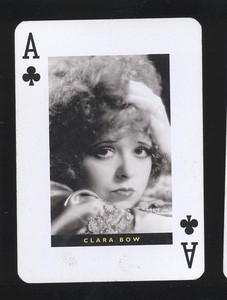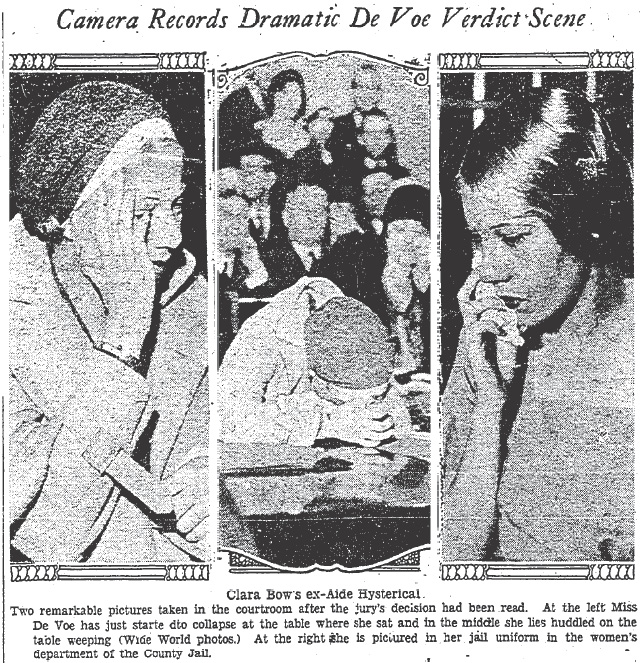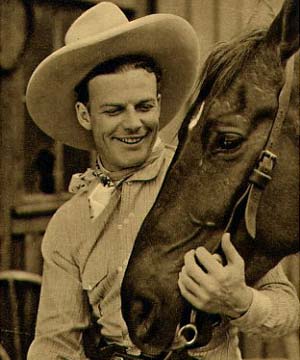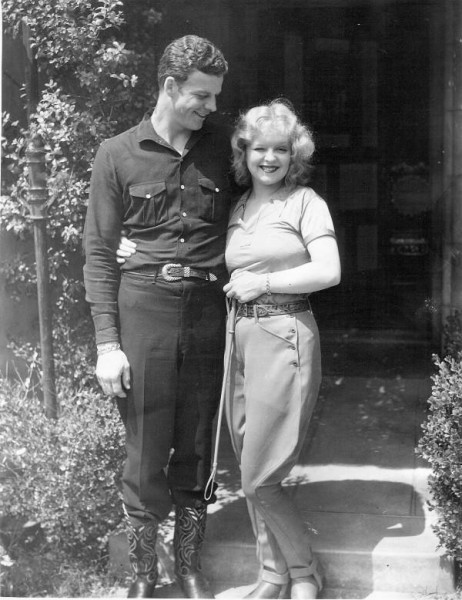Daisy De Voe wanted $125,000 [equivalent to $1.7 million current USD] to keep her mouth shut about Clara Bow’s private life. When her extortion plan failed and she was busted for grand theft De Voe’s attorney, Nathan O. Freedman, used Clara’s private correspondence to humiliate her in open court; and it was all legal. The stolen papers had been submitted as evidence. It was a nightmare for Clara.
Freedman tormented the actress with questions about her relationship with Rex Bell. Clara became angry and frustrated, particularly when he asked her about Daisy’s firing:
“As a matter of fact he (Rex Bell) discharged Miss De Voe from her position as your secretary?”
Clara snapped:
“He didn’t!”
But Freedman continued:
“Well, he’s your secretary now, isn’t he?”
Clara replied:
“He is not; I know it has been printed that he is, but it is not the truth.”
To anyone reading the newspapers it must have appeared that Clara was on trial and not Daisy. Finally, the D.A. questioned Clara about Daisy’s attempt at extortion. Clara testified that only a few days following Daisy’s dismissal W.I. Gilbert, Clara’s attorney, had come to her and told her that Daisy had paid him a visit. The former secretary had demanded $125,000 or, she said, she would turn over certain information she possessed to the newspapers. Then she had the audacity to go to Clara and demand to get her job back!
There was a turning point in the trial though, and it came when a forensic accountant testified that after having double-checked his way through 1,558 of the special account’s canceled checks he discovered a shortfall of $48,000. The special account was the one for which Daisy had access.
Daisy took the witness stand to explain the missing $48,000, but instead she began to tell tales about Clara’s personal life. According to Daisy, Clara played poker six nights a week and had large quantities of liquor delivered to her home on a regular basis. If Daisy was telling nothing but the truth, the jury must have wondered when Clara found the time to appear in films.
Egged on by her attorney’s questions, Daisy told the packed courtroom about Clara’s lifestyle:
“She would rather stay home and play poker than go to the theater or any other place. We played all the time; six nights a week, at least. She never carried any money with her and I had to pay off her debts. Sometimes it was only $4 or $5 and sometimes it was $200.”
The strain of having her life scrutinized in court resulted in Clara absenting herself from the trial. Her physician, Dr. Wesley Hommel, said:
“Miss Bow is suffering from a severe cold and from nervous strain attendant on the trial.” She is running a temperature and I ordered her to bed. Her condition is not serious and she should be up and around in a few days.”
While Clara was ill, Rex Bell, her boyfriend, was a front-seat spectator at the trail.
Nearly three weeks into the trial Judge Doran finally banned the rampant mudslinging, coming primarily from Daisy’s corner. He was interested in having more attention paid to the question of whether she stole Clara Bow’s money than what she knew about Clara’s private life.
It was about damned time.
Clara hadn’t done anything but misjudged Daisy’s character, and yet her reputation had been tarnished. Daisy’s venomous attacks even had a deleterious effect on Clara’s career. The Riverside Board of Censorship barred one of Clara’s films “because of the notoriety” given the actress in the trial of her former secretary. The chair of the board, Mrs. Jessie Joslyn, self-righteously announced:
“Our action in barring the film was taken because of the notoriety given the actress in the Los Angeles trial. Besides, the picture is not of a type we want shown.”
Meanwhile, Daisy’s jury came back deadlocked. They seemed to be confused by one of the judge’s instructions to them regarding “intent to permanently deprive the owner of property”.
Since I can’t time travel, I have no idea why the jury was so confused, or why in the world they found Daisy De Voe guilty on only one of the over thirty counts of grand theft! Even more unfathomable to me was that they recommended leniency for Daisy! They should have thrown the book at her.
Daisy’s request for a new trial was denied, and she was finally sentenced to five years of probation, eighteen months of which she would be required to spend in the County Jail.
 Daisy asked for bail so she could be out during the appeal; however, her request was denied a couple of times before she was released on March 28, 1931 on $5000 bail pending an appeal.
Daisy asked for bail so she could be out during the appeal; however, her request was denied a couple of times before she was released on March 28, 1931 on $5000 bail pending an appeal.
While Daisy was fighting her conviction, and Clara was attempting to piece her life back together, a dirt bag named Fred Girnau was taken into custody by the Feds for sending a publication containing alleged obscene articles about Clara through the mails. And where did he get his information? He said he got it from Daisy De Voe.
The misery of having her private life made food for public consumption was finally too much for Clara who, in May 1931, was admited to the Glendale Sanatorium. Paramount studio executives denied that Bow’s illness would terminate her career.
If there was any good news at all it was that Daisy De Voe and H. Girnau were at each other’s throats — suing and countersuing each other over the stories about Clara Bow that appeared in Girnau’s nasty little rag, The Coast Reporter.
Daisy De Voe’s trial caused Clara so much stress that she decided to retire from the film business and live a quiet life out of the public eye. Clara’s contract with Paramount was “terminated by mutual consent” and she moved to Rex Bell’s Nevada ranch.
NEXT TIME: Final thoughts on the “It” Girl and the Secretary.



